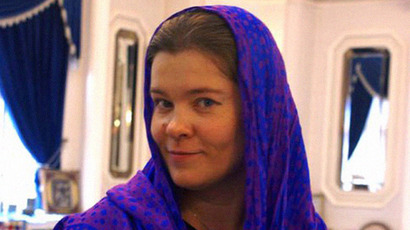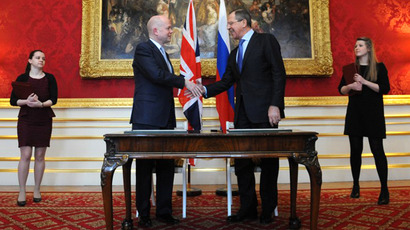Syrian rebels ramp up extrajudicial killings, kidnappings – Amnesty Int’l
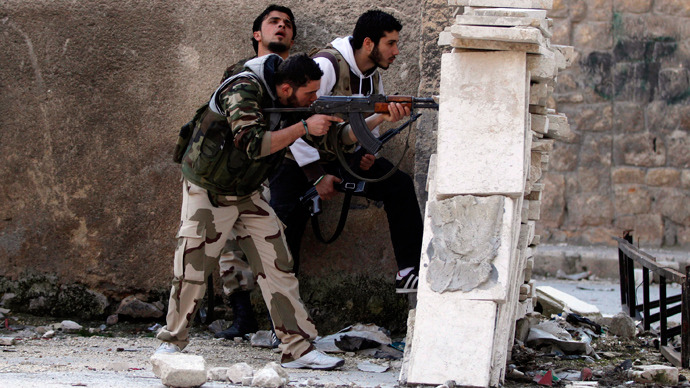
Syrian rebels have increasingly resorted to torture and the summary execution of soldiers, suspected informants, pro-government militias and captured or kidnapped civilians, Amnesty International has warned.
In two separate reports reviewing the conduct of the rebels and
Syrian government, Amnesty said that the killing of government
soldiers and suspected government supporters was on the rise as
rebel forces continue to gain ground.
“[Rebel fighters] are summarily killing people with a chilling
sense of impunity, and the death toll continues to rise as more
towns and villages come under the control of armed opposition
groups," Amnesty said.
“While the vast majority of war crimes and other gross
violations continue to be committed by government forces, our
research also points to an escalation in abuses by armed opposition
groups,” said Ann Harrison, Deputy Director of Amnesty
International’s Middle East and North Africa Program. “If left
unaddressed such practices risk becoming more and more entrenched -
it is imperative that all those concerned know they will be held
accountable for their actions.”
Noting the public sympathy the Syrian opposition continues to
receive in the West, Cilina Nasser of Amnesty said rebel fighters
must be held accountable for crimes against humanity: “It’s time
for the armed opposition groups to know that what they are doing is
very wrong, and that some of the abuses they committed amount to
war crimes.”
Amnesty said it also investigated one of the most gruesome videos
in the conflict to surface in recent months, which showed the
beheading of two Syrian army officers abducted by in the eastern
town of Deir al-Zour in August.
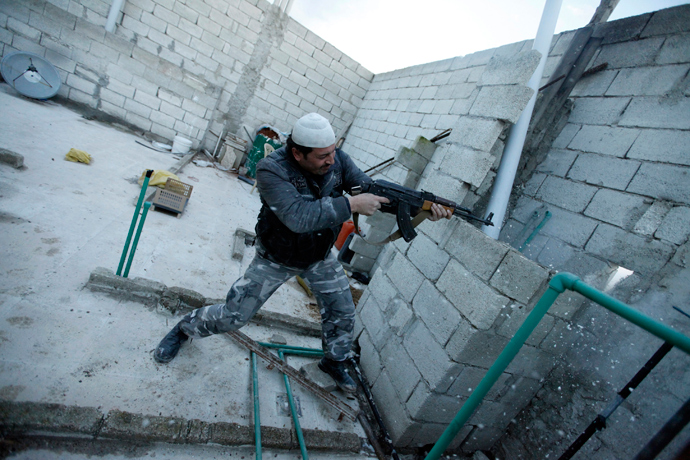
Nasser said researchers contacted the families of the two men, Col. Fuad Abd al-Rahman and Col. Izz al-Din Badr. The relatives of the slain men told Amnesty the kidnappers had identified themselves as members of the opposition group Osoud Tawhid. They initially contacted the family to demand a ransom, but after negotiations the hostage-takers told the family they had killed the two men.
In November, a video surfaced of a machete-wielding boy – apparently between 12 and 14 years of age – standing over Col. Badr, who is lying prostrate with his hands bound behind his back. A voice off-camera provokes the youth, shouting:
“He doesn’t have the strength.” The boy brings the machete down on Col. Badr’s neck as rebel fighters cheer him on. At least one gunman then proceeds to fire six shots into his body.
The family of Col. Rahman learned the gruesome nature of his death after the beheading was aired on Sama TV.
While Amnesty said the footage was most likely authentic, they acknowledged that many videos can be doctored and corroborating evidence and witness testimony is needed.
In a separate case, a witness told the rights watchdog of a so-called
“hole of death” where rebels have dumped the bodies of pro-government fighters or suspected informers.
Another witness told the group about a man who was killed by an opposition faction after being accused of collaborating with the government: “
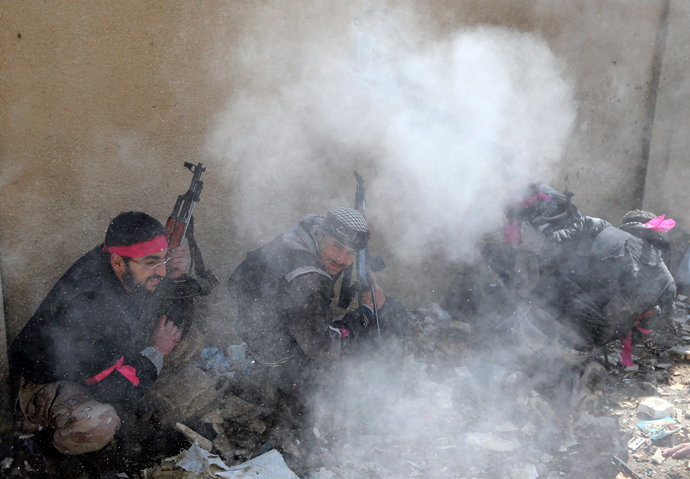
We immediately went there and found him on a heap of waste, with a bullet hole in the middle of his forehead, a firearm injury to the shoulder… His knee was broken… A brown card hung on him with the words ‘collaborator [awayni], Col. Helal Eid,’” a neighbor told Amnesty.
One video reportedly filmed on March 9 in Raqqa, a city which was occupied by rebel fighters last week, showed three bodies laid out in a city square in pools of blood. One of the dead was lying face-down, with his hands tied behind his back. "The dogs of military security were executed in clock square," the video’s narrator says.
The primary Western-backed rebel group, the Free Syrian Army (FSA), denied that summary execution of captured soldiers was a regular practice.
“We do not deny that it’s happening, but these are individual cases, people who take revenge because their father or relatives have been killed by the regime,” Bassam al-Dada, a Turkey-based FSA official, told AP.
“This happens in wars all over the place.” FSA has attempted to introduce a code of conduct, with little success among the numerous rebel factions, particularly the Al-Qaida-linked Jabhat al-Nusra group, which controls key battlefronts.
Amnesty noted that such abuses had been carried out by FSA-affiliated fighters as well.
In a separate report, Amnesty accused government forces of ramping up indiscriminate air and artillery attacks on civilian populations in recent months, often with the use of internationally banned munitions. The group also said that children and civilians were increasingly being killed in government airstrikes on rebel-held territory.
The UN estimates that more than 70,000 people have been killed and over 2 million internally displaced in the two-year uprising to against the government of Syrian President Bashar Assad.













